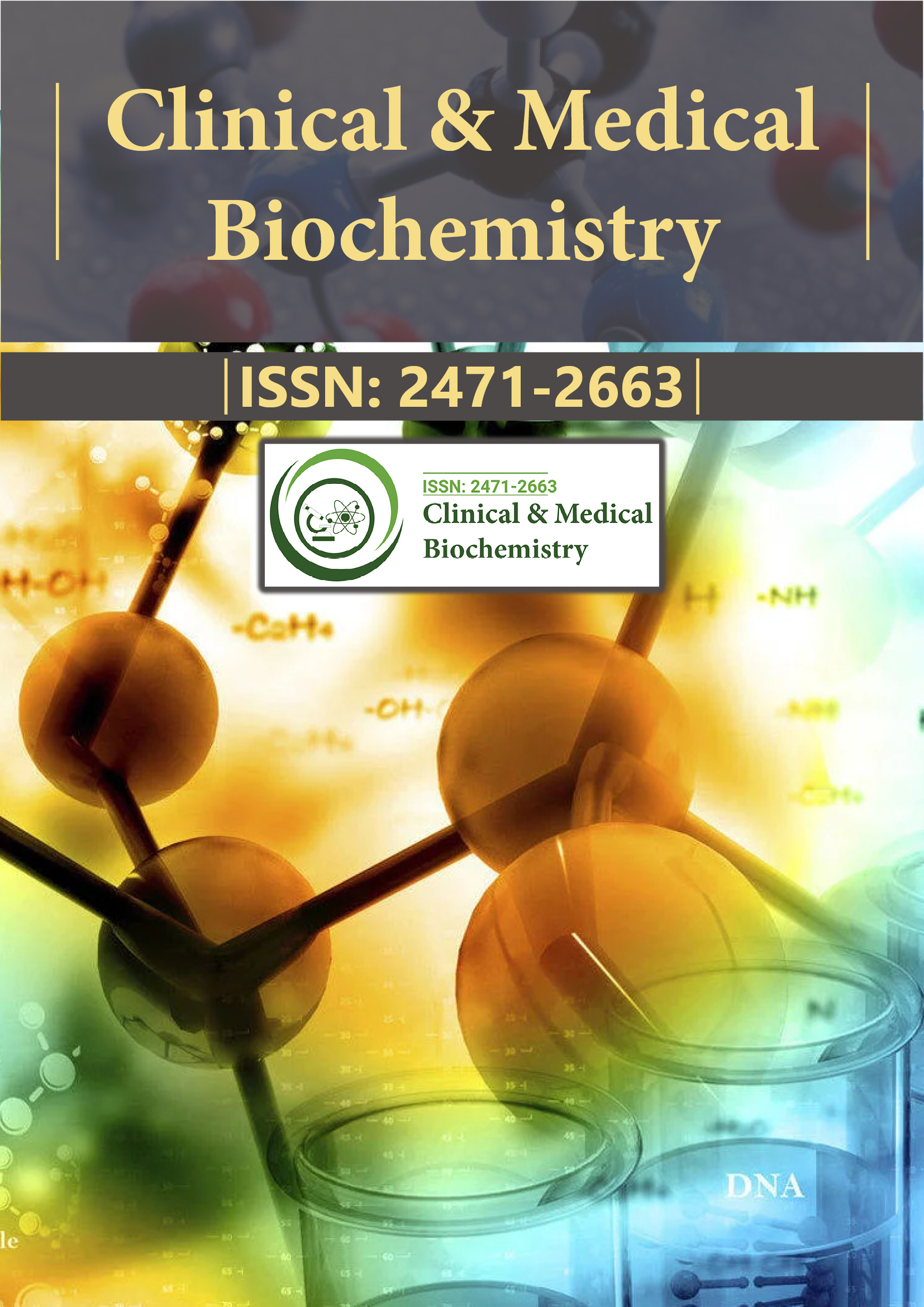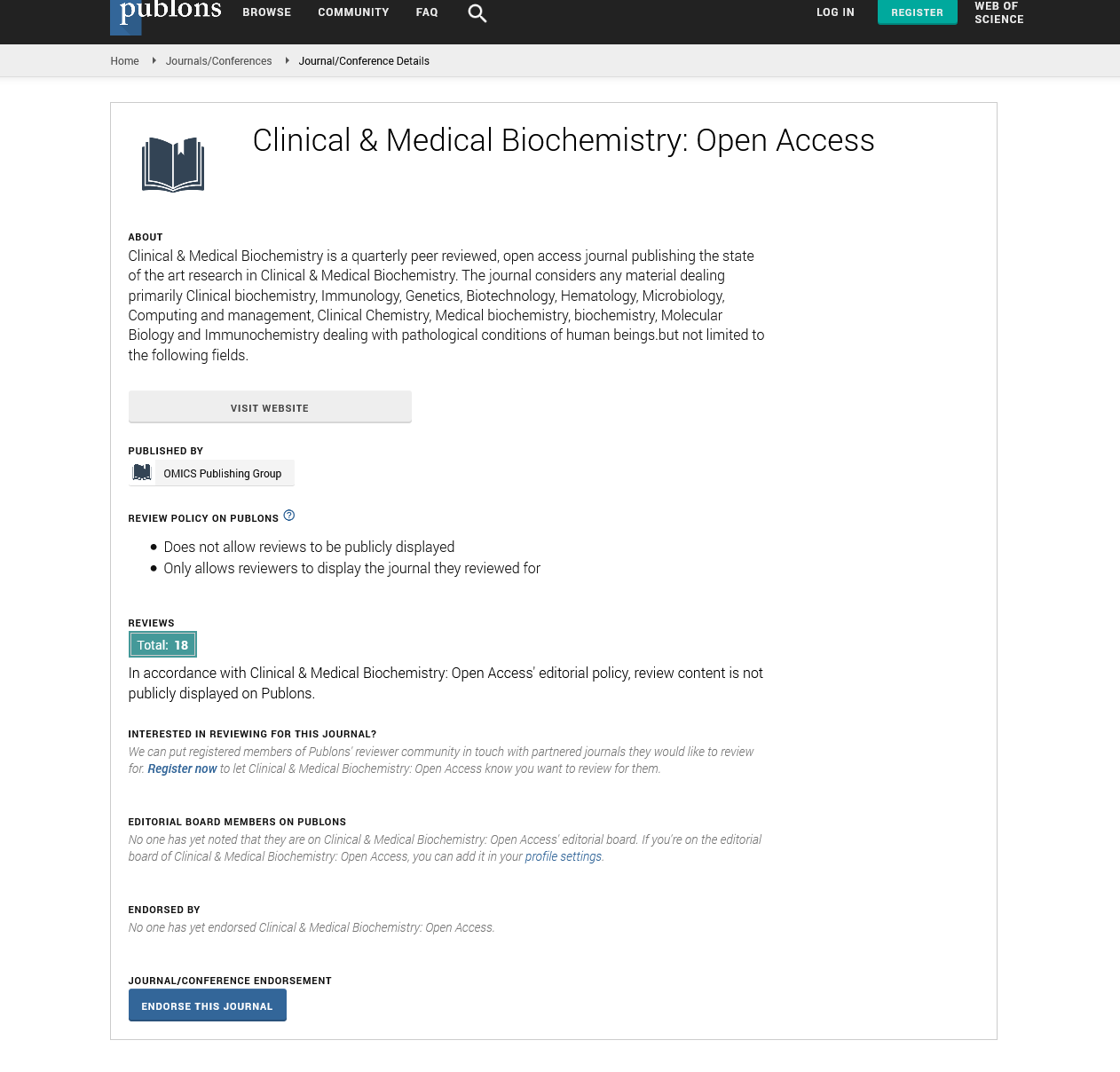Indexed In
- RefSeek
- Directory of Research Journal Indexing (DRJI)
- Hamdard University
- EBSCO A-Z
- OCLC- WorldCat
- Scholarsteer
- Publons
- Euro Pub
- Google Scholar
Useful Links
Share This Page
Journal Flyer

Open Access Journals
- Agri and Aquaculture
- Biochemistry
- Bioinformatics & Systems Biology
- Business & Management
- Chemistry
- Clinical Sciences
- Engineering
- Food & Nutrition
- General Science
- Genetics & Molecular Biology
- Immunology & Microbiology
- Medical Sciences
- Neuroscience & Psychology
- Nursing & Health Care
- Pharmaceutical Sciences
Opinion Article - (2025) Volume 11, Issue 2
Advances in Biomedical Research Driving Innovation in Disease Diagnosis, Treatment, and Personalized Healthcare
Engu Wang*Received: 30-Apr-2025, Manuscript No. CMBO-25-29633; Editor assigned: 02-May-2025, Pre QC No. CMBO-25-29633; Reviewed: 16-May-2025, QC No. CMBO-25-29633; Revised: 23-May-2025, Manuscript No. CMBO-25-29633; Published: 30-May-2025, DOI: 10.35841/2471-2663.25.11.256
Description
Biomedical research has undergone a transformative evolution in recent years, revolutionizing how diseases are diagnosed, treated and managed. This progress has been fueled by rapid advancements in molecular biology, genomics, artificial intelligence and biotechnology, collectively reshaping the landscape of modern healthcare. As a result, clinicians and researchers now possess powerful tools to better understand disease mechanisms, enabling earlier and more accurate diagnoses, more effective treatments and a shift toward truly personalized medicine.
One of the most impactful developments has been in the field of genomics. The decreasing cost and increasing speed of genome sequencing have made it feasible to analyze a patient’s genetic makeup to predict susceptibility to certain diseases, identify mutations responsible for hereditary conditions and guide treatment decisions. Precision medicine, which tailors healthcare to an individual’s genetic profile, lifestyle and environment, has emerged as a direct result of these capabilities. This approach not only improves treatment efficacy but also minimizes adverse effects, representing a significant step forward from the traditional one-size-fits-all model of care.
The integration of artificial intelligence and machine learning into biomedical research has further accelerated innovation. These technologies assist in early diagnosis of complex conditions such as cancer, neurodegenerative diseases and cardiovascular disorders. For instance, machine learning algorithms have demonstrated accuracy comparable to experienced radiologists in identifying tumors from imaging scans, enabling faster and more reliable diagnoses. Additionally, the development of novel biomarkers—biological molecules that indicate the presence or progression of disease—has greatly enhanced diagnostic precision. Biomarkers can reveal early signs of disease before symptoms appear, allowing for timely intervention and improved prognoses. In cancer research, for example, liquid biopsies that detect circulating tumor Deoxyribonucleic Acid (DNA) in blood samples are emerging as non-invasive diagnostic tools, capable of identifying cancers in their earliest and most treatable stages.
Therapeutically, biomedical research is driving the creation of innovative treatments that go beyond traditional pharmaceuticals. Gene therapies, which target and correct defective genes at the source, offer potential cures for previously untreatable genetic disorders. Immunotherapies, particularly in oncology, harness the body’s own immune system to target and destroy cancer cells, with remarkable success in conditions such as melanoma and certain types of leukemia. Additionally, advances in regenerative medicine and tissue engineering are enabling the development of lab-grown organs and tissues, providing new hope for patients awaiting transplants or recovering from injury.
The convergence of big data, wearable technologies and mobile health apps has also empowered individuals to take a more active role in their health. Real-time monitoring of physiological parameters—such as heart rate, glucose levels and sleep patterns—provides continuous feedback, enabling early detection of abnormalities and fostering preventive care. These tools not only support personalized treatment plans but also facilitate remote patient monitoring, making healthcare more accessible and efficient.
Conclusion
In conclusion, the ongoing breakthroughs in biomedical research are redefining the possibilities of modern medicine. By enhancing our understanding of diseases at a molecular level and leveraging cutting-edge technologies, researchers and clinicians are ushering in an era of highly precise, individualized and effective healthcare. As innovation continues to accelerate, the potential to improve patient outcomes and transform lives has never been greater.
Citation: Wang E (2025). Advances in Biomedical Research Driving Innovation in Disease Diagnosis, Treatment and Personalized Healthcare. Clin Med Bio Chem. 11:256.
Copyright: © 2025 Wang E. This is an open-access article distributed under the terms of the Creative Commons Attribution License, which permits unrestricted use, distribution and reproduction in any medium, provided the original author and source are credited.

